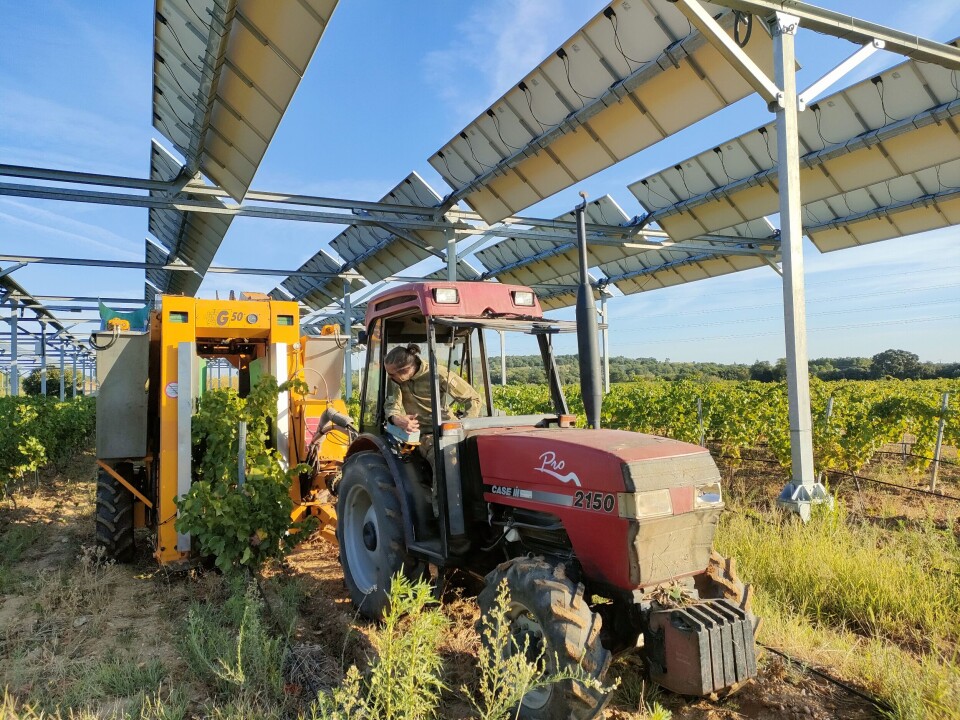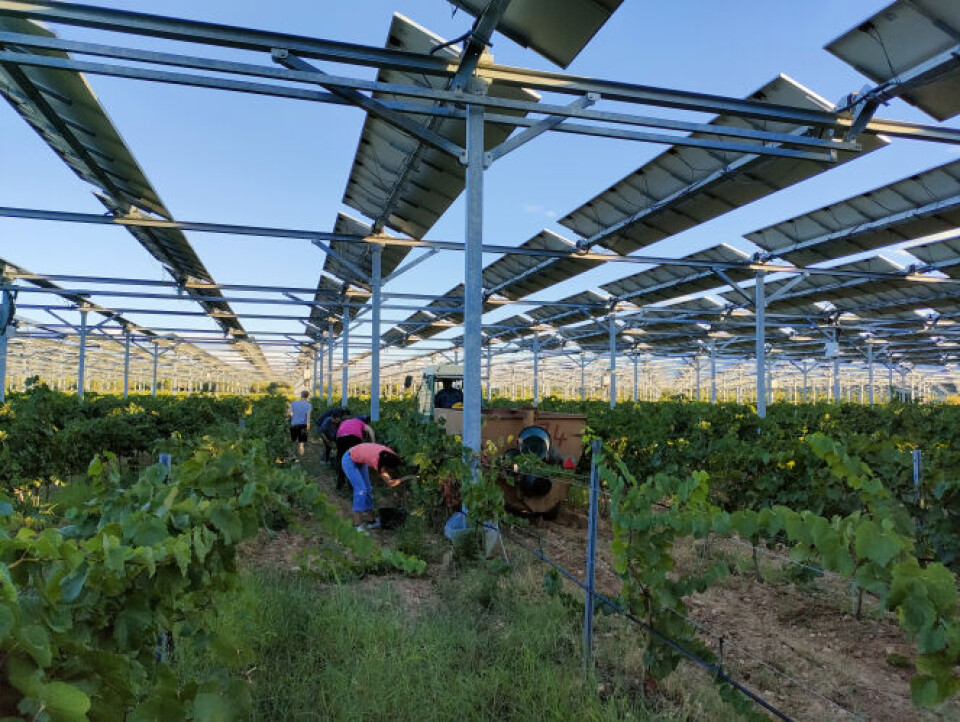-
DIY solar panels in France: Considering the pros and cons
Solar panels help combat rising electricity costs - at a price
-
New rules lower aid for home solar panels in France
Installation bonuses have also been cut as government looks to promote ‘self-consumption’ of power
-
Why France is reviewing reducing aid for solar panels
A new draft decree has caused concern among some in the renewable energy sector
France imposes regulations on use of solar panels on farms
Farmers in France will soon only be able to define their activity as ‘agrivoltaics’ if the solar panels benefit their agricultural production in some way

One effect of a renewable energy bill that was recently approved by MPs will be to regulate a growing practice: agrivoltaics.
This involves installing solar panels on farmland but the bill sets out a number of conditions.
The panels must contribute to the creation, maintenance or development of agricultural production, and the latter must continue to be the main use of the land.
Their installation must also be reversible. “We are satisfied with the definition,” said Stéphanie-Anne Pinet, of the association France Agrivoltaïsme, which was created in 2021.
“Since there is currently no definition, everybody can use the term agrivoltaics to agriwash their project and make it seem more acceptable.
“A regulatory framework is needed to make the distinction with solar panels on agricultural land, where they are on the floor with a few sheep around them, and to develop the practice in a durable way without encountering problems in terms of social acceptability.

”The lack of a clear definition until now means it is difficult to know the extent of the phenomenon in France.
The association estimates there are up to 200 projects, with many more in the planning stages.
The new definition recognises that an agrivoltaics project should not simply replace income from farming with income from selling energy.
The solar panels are meant to make the agricultural activity more sustainable by mitigating the effects of climate change.
“They can protect against frost, hail, heatwaves, and reduce the amount of water crops need,” Ms Pinet said.Panels can be positioned to let more or less sunlight through, depending on the needs of the crops.
“The technology must adapt to the agricultural production, not the other way around.
”Reducing energy bills or having an additional source of revenue is an added benefit, not the primary objective, Ms Pinet added.
She said agrivoltaics contributes to two major issues: food sovereignty and energy sovereignty.
The practice has been criticised by the Confédération paysanne farmers’ group, which says it makes farmers more dependent on big businesses.
It also claims it has a negative impact on landscapes and biodiversity.
Related articles
Plans for a giant solar park anger residents in south-west France
Green news France: hydrogen city bus, solar panel threat to trees
Solar panels on French property: how to make your own electricity
























